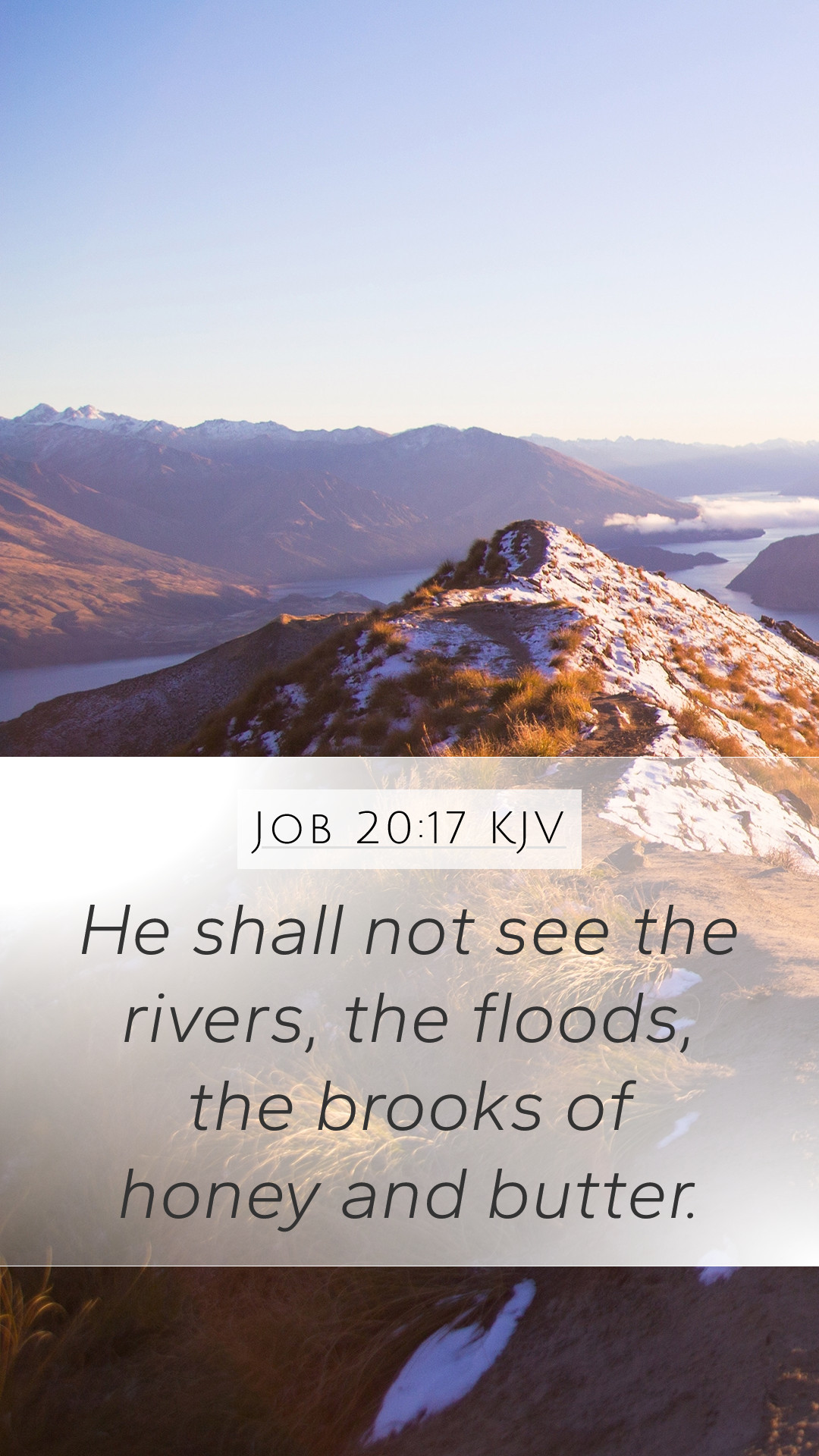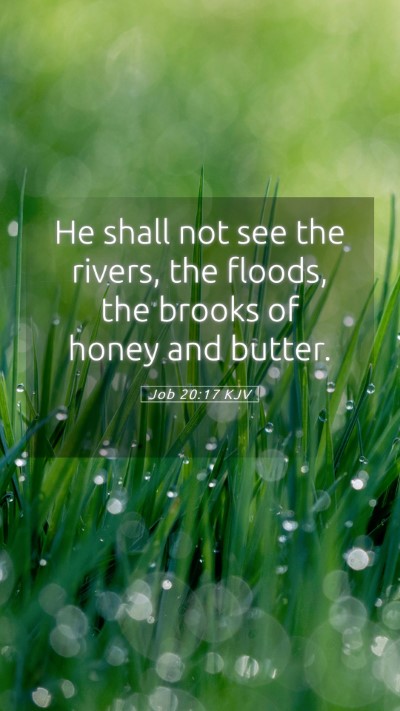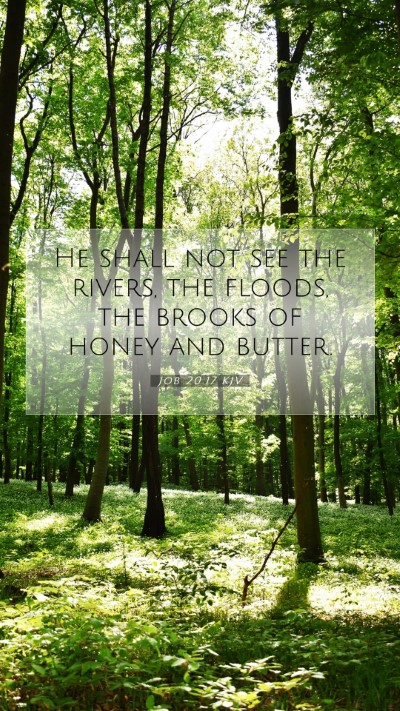Old Testament
Genesis Exodus Leviticus Numbers Deuteronomy Joshua Judges Ruth 1 Samuel 2 Samuel 1 Kings 2 Kings 1 Chronicles 2 Chronicles Ezra Nehemiah Esther Job Psalms Proverbs Ecclesiastes Song of Solomon Isaiah Jeremiah Lamentations Ezekiel Daniel Hosea Joel Amos Obadiah Jonah Micah Nahum Habakkuk Zephaniah Haggai Zechariah MalachiJob 20:17 Meaning
What is the meaning of Job 20:17?
He shall not see the rivers, the floods, the brooks of honey and butter.
Job 20:17 Bible Verse Meaning
Understanding Job 20:17
Job 20:17 states: "He will not see the rivers, the floods, the brooks of honey and butter." This verse is part of a larger discourse by Zophar, one of Job's friends, who emphasizes the fate of the wicked.
Verse Meaning and Commentary
This verse suggests that those who live wickedly will not enjoy the blessings of life, represented by the imagery of rivers and streams filled with honey and butter. Here’s a detailed look at the insights from prominent public domain commentaries:
Insights from Matthew Henry
Matthew Henry notes that Zophar's assertion reflects a common belief in the poetic justice that befalls the unrighteous. He explains that though the wicked may seem to prosper, their end is destruction, and they will ultimately be denied the sweet blessings that others may enjoy.
Insights from Albert Barnes
Albert Barnes provides a similar interpretation and highlights that rivers and brooks symbolize abundance and life. The absence of these blessings implies a curse upon the wicked, indicating that their wickedness will lead to their deprivation. Barnes emphasizes the certainty with which divine justice operates against the unrighteous.
Insights from Adam Clarke
Adam Clarke expands on the metaphor in this verse by explaining the significance of honey and butter as symbols of richness and satisfaction. Clarke's commentary suggests that the verse serves as a warning that the pleasures of this world will vanish for those who choose a life of sin.
Symbolism and Themes
- Righteousness vs. Wickedness: The contrast between the life of the wicked and the rewards of the righteous is a key theme in this verse.
- Divine Justice: The verse underscores the principle that God’s justice will ultimately prevail against sin.
- Imagery of Abundance: The use of rich imagery (rivers, honey, and butter) serves to illustrate the blessings of a life aligned with God's will.
Cross References
Understanding Job 20:17 can be further enriched by the following related verses:
- Psalms 1:4-6: The righteous are likened to trees planted by rivers, while the wicked are compared to chaff.
- Proverbs 10:2: “Treasures of wickedness profit nothing, but righteousness delivers from death.”
- Ecclesiastes 7:15: A reflection on why the wicked often seem to prosper, only to find their end leads to sorrow.
Applications for Today
The insights gained from Job 20:17 can be applied in today's context by recognizing the moral and spiritual implications of one's choices. In Bible study groups, this verse can spark discussions on:
- How to interpret Bible verses: Understanding the implications of our actions and their outcomes.
- Applying Bible verses to daily life: Evaluating the importance of living righteously for spiritual fulfillment.
- In-depth Bible verse analysis: Exploring the themes of justice and righteousness throughout the entire Book of Job.
Conclusion
Ultimately, Job 20:17 serves as a poignant reminder of the temporary nature of earthly delights for those who stray from God's path. In seeking Bible verse meanings, interpretations, and explanations, we are encouraged to reflect on our lives in light of divine principles, ensuring we seek the true blessings that come from righteousness.


